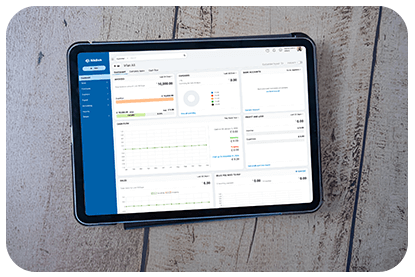19 April 2024
Cash Book Guide for Beginners: Simple Tips to Track Expenses
Managing expenses effectively is a key step toward better financial control, whether for personal use or business operations. One helpful tool to simplify this process is a cash book. It allows you to record income and spending in an organized way, making it easier to monitor your financial activity and make informed decisions.
This guide will walk you through the basics, offering simple tips to track expenses efficiently and improve your overall financial management.
What is a Cash Book?
This record tracks every cash inflow and outflow, including transactions made through the bank. It functions as a combined journal and ledger, allowing transactions to be logged and balanced within a single system.
There are a few common formats:
- Single-column – Tracks only cash transactions.
- Double or triple-column – Adds sections for bank dealings and discounts, offering more detailed financial insights.
Why Use a Cash Book?
Using a cash books offers several advantages for both individuals and businesses:
- Real-time tracking of cash flow
- Easy monitoring of daily transactions
- Simplifies accounting and tax preparation
- Enhances financial transparency
In cash book accounting, maintaining an up-to-date cash books ensures that your financial records are accurate and reliable, making it easier to manage your budget and plan for the future.
Understanding the Petty Cash Book
Routine expenses such as office materials, postage fees, or minor maintenance occur frequently in many companies, particularly in smaller enterprises. To keep these costs organized, a petty cash book is used.
This separate record helps track minor expenses clearly, avoiding confusion with main financial accounts and improving transparency.
Using a petty cash books offers several advantages:
- Keeps the main records clean and uncluttered
- Makes it easy to review and verify small transactions
- Helps monitor and limit spending on everyday items
How It Fits into Double-Entry Bookkeeping
Although it may seem like a simple, single-entry tool, this type of financial record also supports double-entry bookkeeping principles. Each transaction involves two parts: a debit when money comes in and a credit when money goes out.
These transactions are then posted to their respective ledger accounts. For example, receiving payment for a sale would be recorded as a debit in the cash record and a credit in the sales account.
Accurate recording ensures balanced accounts and helps prevent errors in financial statements.
Tips for Using a Cash Book Effectively
If you’re just getting started, here are some simple yet powerful tips to make the most of your cash book:
- Record transactions daily – Don’t wait until the end of the week. Daily entries prevent errors and omissions.
- Separate business and personal expenses – Keep your records clean and organized by maintaining separate cash books.
- Reconcile regularly – Compare your cash book with bank statements to identify discrepancies early.
- Use columns effectively – Include categories such as date, description, reference number, amount, and balance.
- Automate when possible – Consider using digital tools or spreadsheets to simplify data entry and calculations.
Boost Your Efficiency with Cash Management Services
While manual cash books work well for small setups, growing businesses may benefit from professional cash management services. These services help streamline your cash handling, monitor inflows and outflows, and improve liquidity.
By integrating your cash book with digital cash management tools, you can:
- Automate reconciliation
- Generate reports quickly
- Gain better insights into spending patterns
Read More About: Financial Management Tips for Modern Businesses in 2025
Final Thoughts
A cash book is an essential starting point for anyone looking to get a handle on their finances. Whether you’re tracking business revenue or managing a household budget, a well-maintained cash book forms the foundation of smart money management.
By understanding cash book accounting, using a petty cash book for small expenses, and tying your records into double-entry bookkeeping, you can build a solid system that grows with your needs. And if managing cash becomes overwhelming, don’t hesitate to explore cash management services to keep your finances on track.



